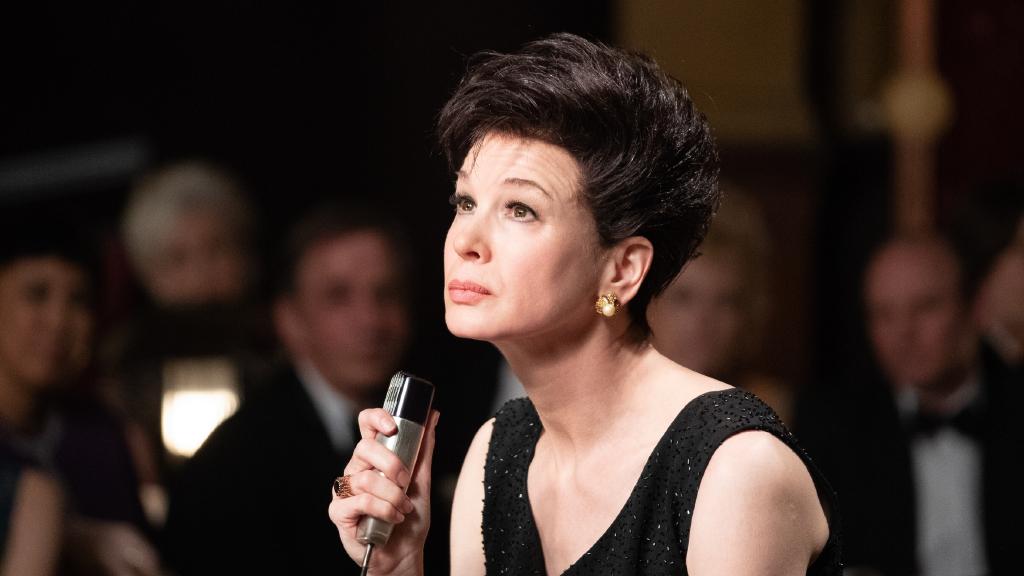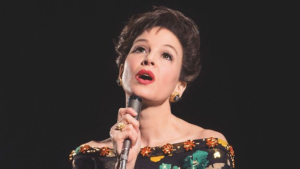Directed by Rupert Goold | Written by Tom Edge, based on the play by Peter Quilter | 118 min | Netflix
I sometimes feel for filmmakers who tackle biographical dramas, especially a musical biopic. I challenge anyone to list good ones on the fingers of more than one hand. Not many can deliver the staggering brilliance of, say, La Vie En Rose. That’s the high standard Judy is swinging for, that and maybe the emotional impact of last year’s A Star Is Born. Full marks for the attempt, but this film misses those targets by a fair margin.
We’ve known for years that Judy Garland, the queer icon and Hollywood musical veteran, had a tough and unforgiving life away from the glamour machine—from the abuse she suffered as a child in the studio system, groomed as the star of The Wizard of Oz and countless other entertainments, to her many marriages, financial insecurity, and drug addiction. She performed from a place of deep pain, a truth that busted through layers of showbiz artifice. She also had a once-in-a-generation voice.
That’s the part of Zellweger’s performance that really impresses. She hasn’t got Garland’s range or power, but she manages a fair approximation of her style and intonation, enough to believe it. The scenes where she sings are impressive and engaging, and it’s hard to ignore the fact Zellweger is here herself staging a sort of comeback after years out of the spotlight. She’s always been a talent, usually the best part of whatever she’s starring in, and credit to her for putting it all out there—for the first time in her career playing such a recognizable figure. The effort’s admirable.
But she never really convinces as late-period Judy Garland. She can do the outward suffering. The hair, the make-up, and look is right, but Zellweger has an inner steel, a Texas-bred strength that pervades even when she’s Bridget Jones, and it’s present here, too. At this point in her life, months before her accidental overdose, Garland was a wreck, brittle and flailing. Zellweger is impressive playing a character, a twitchy, unhappy woman, but I didn’t really see much of Garland’s particular damage there. There’s a technical performance on display here that I struggled to get past, and it was only in the singing that I did.
A bigger problem still is the movie’s not very good. It’s a life-support system for its central performance, offering no other resonant characters and not much that’s fresh in the storytelling, hitting too many of the biopic cliches..
Garland is forced to leave her kids (including Game of Thrones‘ Lyanna Mormont, Bella Ramsey, as youngest daughter Lorna Luft) in the United States with their father (Rufus Sewell) in order to work and pay off a massive tax debt. That means singing on stage in London—for a grizzled promoter (Michael Gambon) while she’s minded by a local woman (Jesse Buckley). While in London, Judy’s sought out by a younger American with romantic ambitions (Finn Wittrock). Meanwhile we get too frequent flashbacks to her younger self (Darci Shaw) detailing the abuse she endured as a teen.
The best part of the picture is when Garland, lonely in London, meets a couple of fans at the stage door and suggests they all go to dinner. It offers a genuine moment of warmth and charm in a film gagging for it. Director Goold is concerned only with delivering his star a close-up to draw the inevitable Oscar-attention, leaving the rest of the film bereft of style.











